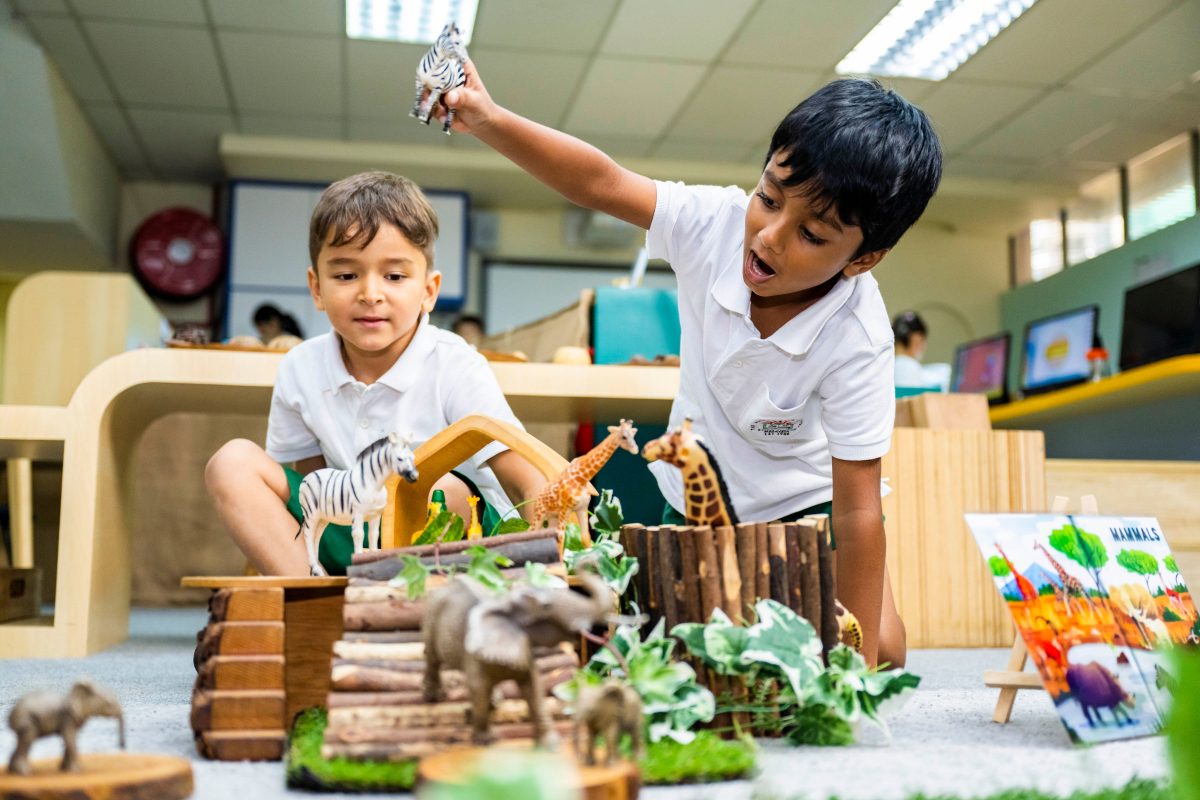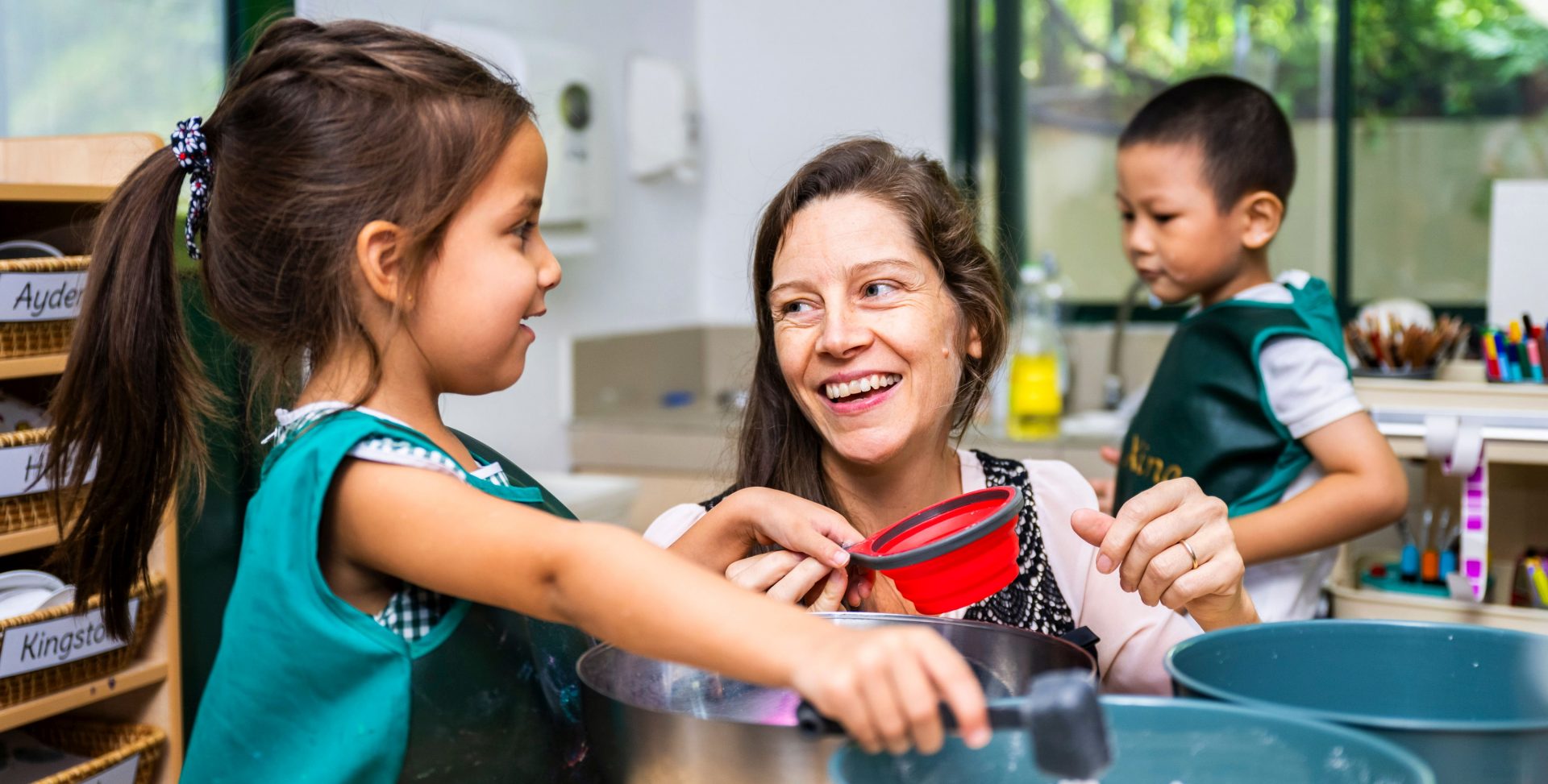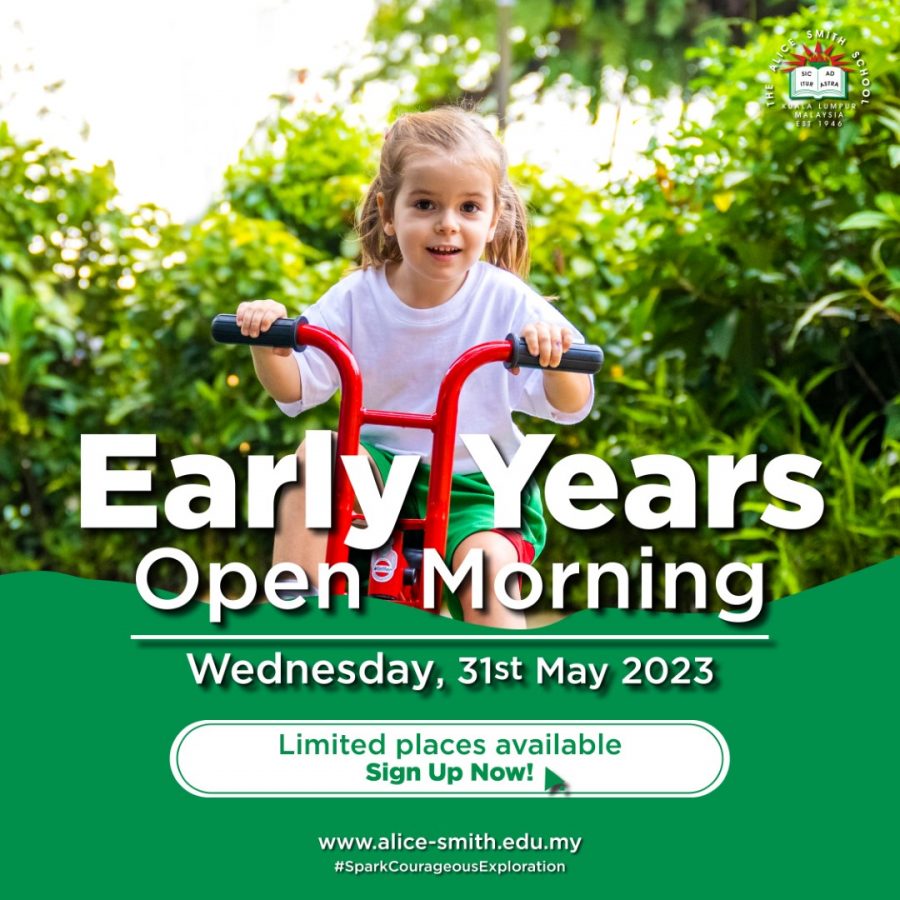The critical importance of learning during the formative years of a child’s development is key to the Early Years programme at Alice Smith School.
A recently updated publication from UNESCO; Why is Early Childhood Care and Education Important?, highlights a range of areas critical to the life success of a child. The period from birth to eight years old is one of remarkable brain development for children and represents a crucial window of opportunity for education. When children are healthy, safe and learning well in their early years, they are better able to reach their full developmental potential as adults. Neuroscience has shown that the environment affects the nature of brain architecture – the child’s early experiences can provide either a strong or a fragile foundation for later learning, development and behaviours.

At Alice Smith School Early Years, the approach to learning is shaped by child development theory as well as a firm belief in the importance of learning at this stage. In essence, Early Years extends from Preschool to Year 2 as children move from 3 years old to 7 years old. Central to this approach to learning is the aim to create the conditions for children to achieve agency. The OECD Learning Compass 2030 is rooted in the principle that students have the ability and the will to positively influence their own lives and the world around them. Every child has limitless potential and, given the appropriate conditions for learning, can achieve anything. This way of thinking shapes all aspects of the Alice Smith Early Years experience.

Children, adults, and the environment interact in a way which provides children with multiple opportunities to achieve agency throughout their experience. A huge amount of consideration is given to the role of physical spaces. The Early Years environment at Alice Smith is carefully crafted to align with beliefs in the child. Children are free to explore in multiple indoor and outdoor spaces with a range of open ended resources which promote high levels of well-being, involvement and challenge. This in turn allows the child to be shaper rather than feeling they are being shaped. As a result, children are deeply involved in their learning, focusing for long periods, challenging their own thinking and that of others, collaborating, creating and deepening their understanding of the world around them as well as themselves.
The role of the adult is key; knowing when and how to question, when to observe, when to support, scaffold or extend and most importantly to listen. Built on a foundation of knowing every child, Alice Smith Early Years Educators engage in hundreds of high quality interpersonal interactions every day. Through this complex and highly skilled approach, the school believes that children develop important learning behaviours and ultimately become better learners. (Jan Dubiel, 2023)
To experience the Alice Smith Early Years, join the upcoming Open Morning on Wednesday, 31st May. Register HERE.
Follow Alice Smith School Early Years Twitter @KLASS_JBEYFS and Instagram @KLASS_earlyyears
"ExpatGo welcomes and encourages comments, input, and divergent opinions. However, we kindly request that you use suitable language in your comments, and refrain from any sort of personal attack, hate speech, or disparaging rhetoric. Comments not in line with this are subject to removal from the site. "






















